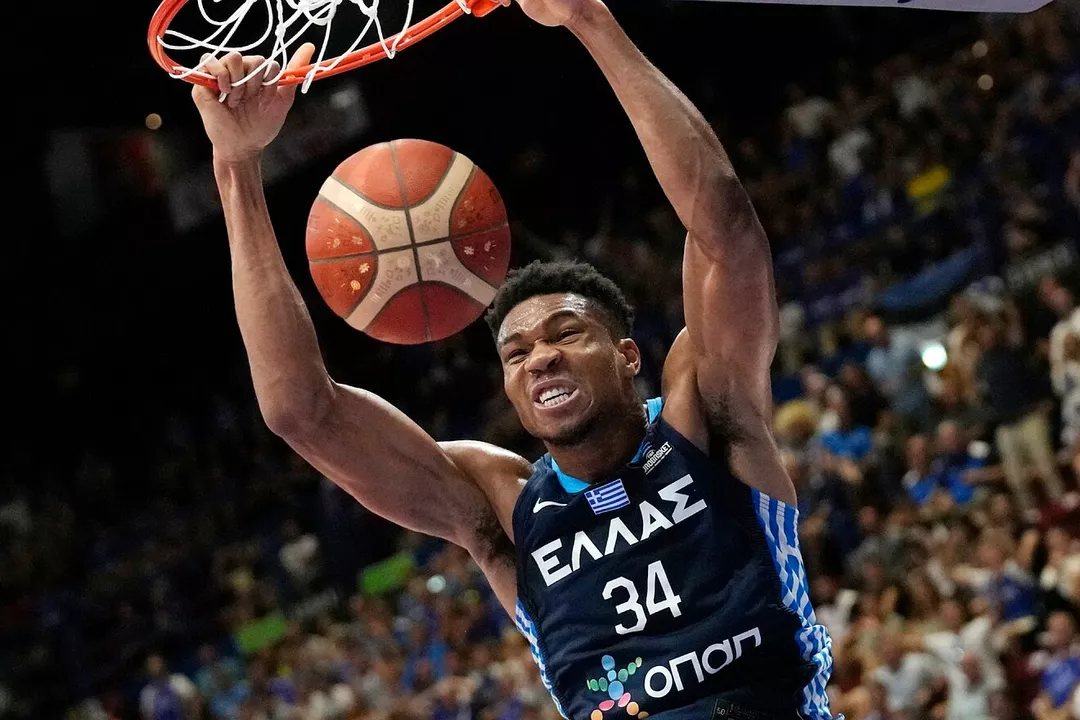Introduction: Giannis Antetokounmpo's Love for Greece
As a huge basketball fan, I've always been fascinated by Giannis Antetokounmpo's unique talent and his inspiring journey to the NBA. But one question that often gets asked is, why doesn't Giannis play for the Greek national team? To better understand this, we need to delve into Giannis' background, his connection to Greece, and the various factors that have influenced his decision. In this article, I will explore the reasons behind Giannis' absence from the Greek national team, while also highlighting his deep love and appreciation for the country that has given him so much.
A Brief Background: Giannis Antetokounmpo and His Greek Roots
Giannis was born and raised in Athens, Greece, to Nigerian immigrants. Growing up in a humble family, Giannis and his brothers faced many challenges in their pursuit of a better life. Despite these hardships, Giannis never lost sight of his love for basketball and his dream of one day playing in the NBA. Through hard work, determination, and the support of his family and local community, Giannis was able to achieve his dream, becoming one of the brightest stars in the NBA.
His journey is a testament to the opportunities that Greece provided him and his family. As a result, Giannis has always maintained a strong connection to his Greek identity, even after becoming an international superstar. He has proudly represented Greece in the past, playing for the national team in various competitions, including the FIBA EuroBasket tournament. However, recent years have seen Giannis absent from the Greek national team, which has left many fans wondering why.
The NBA Commitments: Balancing National Team and Professional Career
One of the main reasons behind Giannis' absence from the Greek national team is his commitment to his NBA career. Playing for the Milwaukee Bucks, Giannis has a demanding schedule, which often conflicts with the timing of international basketball tournaments. The NBA season typically runs from October to April, with playoffs extending into June. This leaves little time for players to participate in international competitions, which often take place during the summer months.
Furthermore, NBA teams invest a lot of money in their star players and expect them to prioritize their professional careers. As a result, many NBA players, including Giannis, face immense pressure to focus on their team's success in the league, rather than representing their countries in international tournaments. This is especially true for Giannis, who recently signed a massive contract extension with the Bucks, making him one of the highest-paid players in the league.
Injuries and Health Concerns: Protecting His Body and Future
Another reason why Giannis might not play for the Greek national team is the risk of injury. Basketball is a physically demanding sport, and playing in international competitions during the offseason can take a toll on a player's body. Injuries sustained during these tournaments can potentially jeopardize a player's NBA career and future earning potential.
Giannis has already experienced a few injury scares in recent years, including a knee injury that forced him to miss several games during the 2018 FIBA World Cup qualifiers. As a result, it's understandable that he might be hesitant to participate in international competitions and risk further injury. By focusing on his NBA career and taking the necessary time to rest and recover during the offseason, Giannis is protecting his long-term health and future in the league.
Controversy and Politics: Navigating the Complex World of International Basketball
There is also a political side to the story, as international basketball is often plagued by controversies and disputes. In the case of Giannis and the Greek national team, there have been several instances of tension between the player, his family, and the Greek Basketball Federation. Disagreements over coaching decisions, treatment of players, and the overall management of the national team have all contributed to Giannis' reluctance to represent Greece in recent years.
It's important to note that Giannis has always expressed his love and appreciation for Greece, and his decision not to play for the national team should not be seen as a rejection of his Greek identity. Rather, it is a reflection of the complex and often frustrating world of international basketball politics, where the best interests of the players are not always the top priority.
Conclusion: Giannis Antetokounmpo's Legacy and the Future of Greek Basketball
In conclusion, there are several factors that contribute to Giannis Antetokounmpo's decision not to play for the Greek national team, including his NBA commitments, concerns about injuries, and political tensions within the Greek basketball community. While it's disappointing for fans not to see Giannis representing Greece on the international stage, it's important to remember that his love for the country and its people remains strong.
As the face of Greek basketball, Giannis has already inspired a new generation of young players, both in Greece and around the world. His success in the NBA serves as a powerful reminder of the opportunities that can arise from hard work, determination, and the support of a strong community. By focusing on his NBA career and continuing to be a positive role model, Giannis is paving the way for the future of Greek basketball, even if he doesn't wear the national team jersey as often as we'd like.
